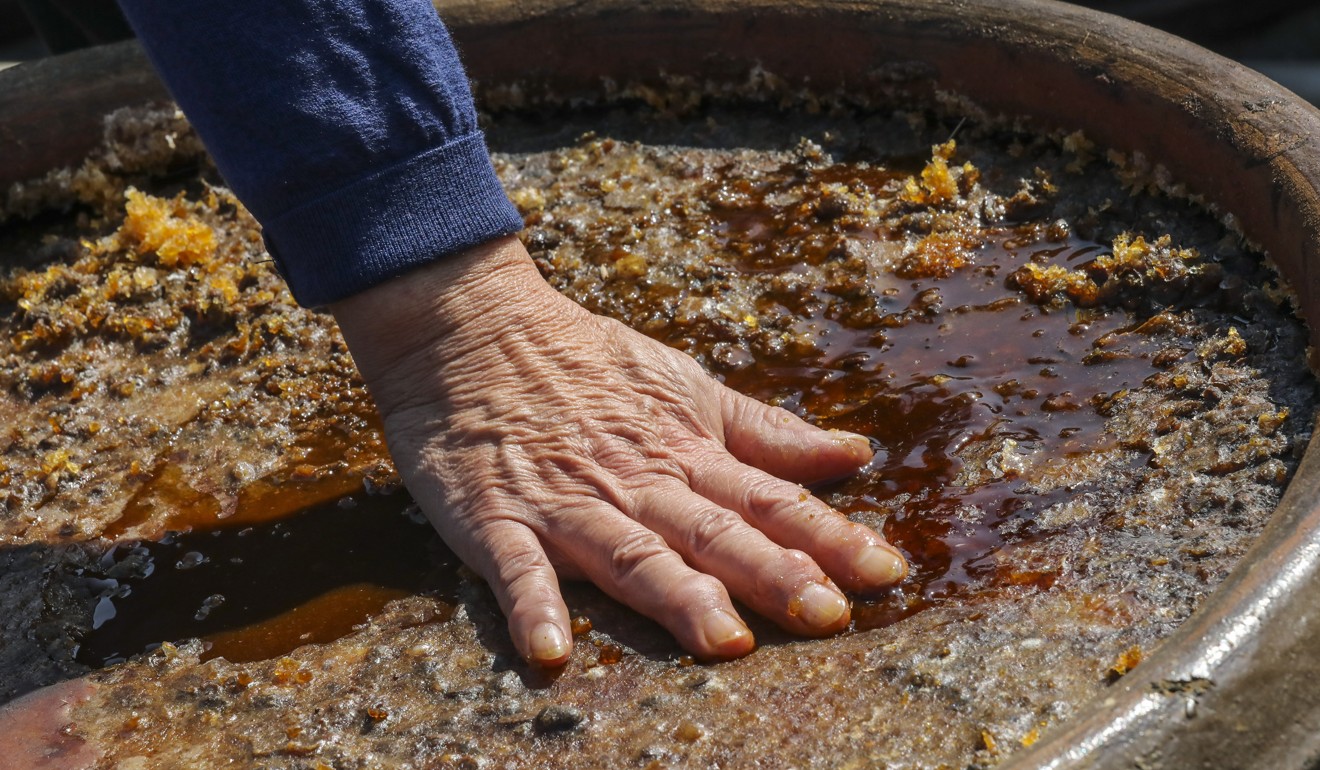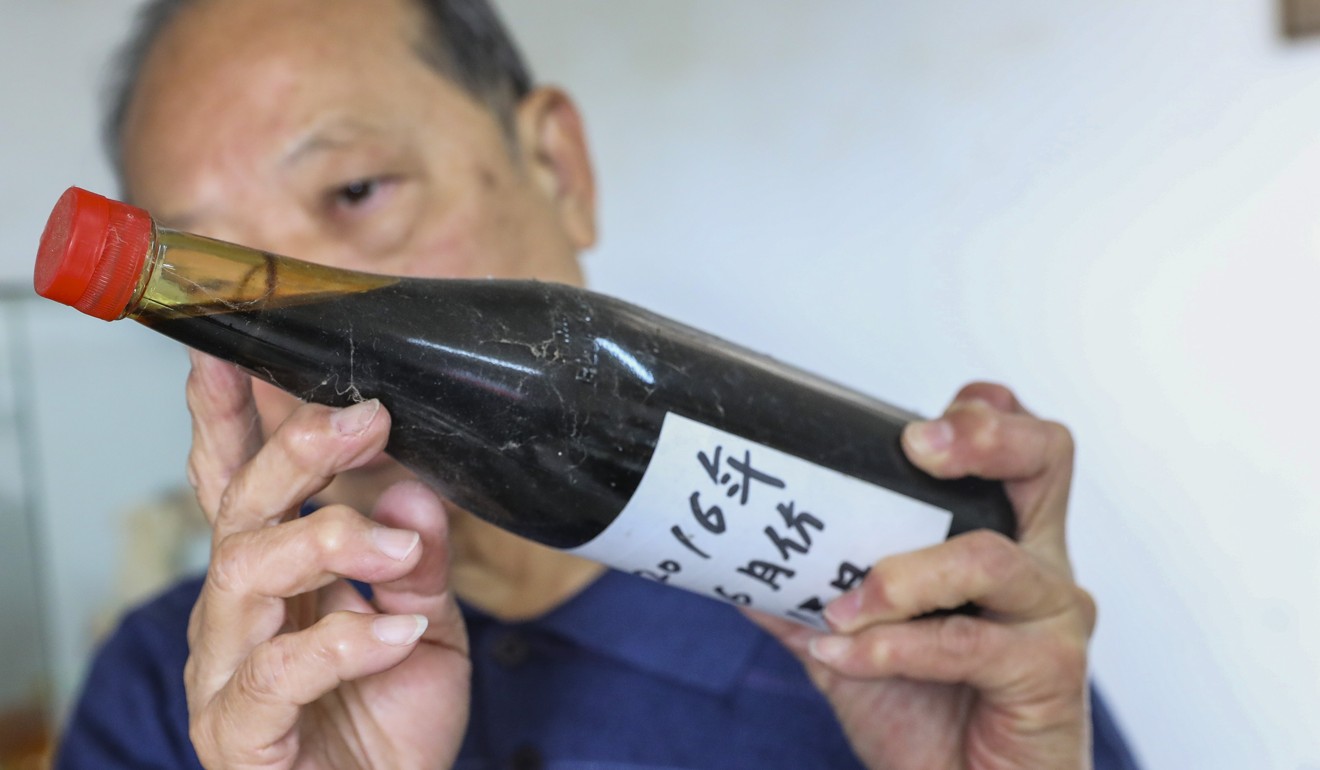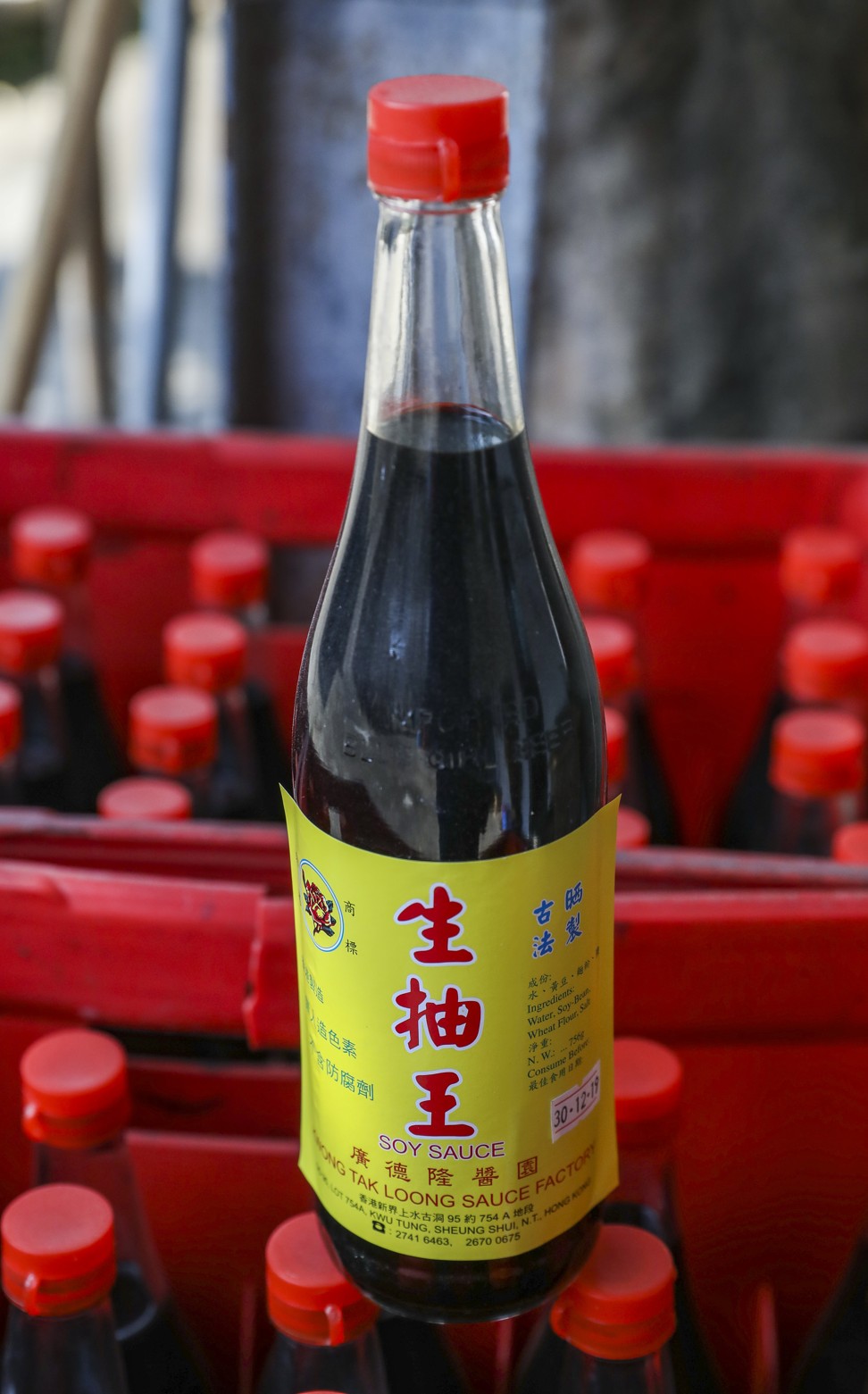
Soy sauce makers affected by impending Hong Kong housing projects in Fanling North and Kwu Tung North, as tradition bows to development
- In the first of a three-part series, the Post visits an old workshop brewing vital household condiment
- Push for new town projects amid housing crisis means the end of the road for cottage industries that cannot relocate
In Hong Kong’s Kwu Tung village, tucked away in a quiet idyllic corner of Sheung Shui, 90-year-old Pang Chuk-lui dips his hands into a clay urn filled with squishy amber beans, the back of his palms pressing down into the soft contents.
A dark liquid flows into his cupped hands, the mixture glistening under the winter sun.
“We make soy sauce the traditional way. You know nothing about it,” Pang said, smiling proudly, his eyes brimming with satisfaction at the work.

For more than 70 years, Pang’s brewing house Kwong Tak Loong has been fermenting and sun-drying soy sauce this way. Every day, he travels for almost two hours from his home in downtown Yau Ma Tei to the far-flung factory to keep the business running.
Hong Kong to push ahead with controversial decade-old plan to build two new towns of Fanling North and Kwu Tung North
It is one of four remaining traditional soy sauce factories in Kwu Tung, all having relocated to this area in the last century because of urban development and high rents. The relatively flat land drenched in long hours of sunlight made it ideal for the beans to bake in hundreds of clay vats, yielding the condiment.
But a government decision to develop a new town means the lingering earthy aroma of soy in Kwu Tung may soon fade.
The first phase of the Fanling North and Kwu Tung North new town developments will mean some 450 households have to relocate starting from the second half of the year. The projects, to produce 71,800 flats in 2031, will affect up to 1,500 households.
Kwong Tak Loong, founded in 1945, is not included in the first phase, so Pang still has a few years to arrange for relocation, an unwelcomed certainty.
The average age of Pang and his four staff members is 73. Pang said his children, grandchildren and great grandchildren had no intention to learn the art of making soy sauce or inherit the brewing house with 200 urns in its yard.
Fanling North and Kwu Tung North development plan is ‘killing family farms’ in Hong Kong, affected residents say
Lo Kin-tak, 74, who has been working with Pang for more than 40 years, told the Post that Pang has prepared for the inevitable end, even expecting authorities to seize the land.
“He sees it as an honourable way to end the factory by letting the government take the land,” Lo said. “He doesn’t want people to say that the factory folded under him.”

But for traditionalists such as Lo and Pang, the demise of their trade will also mean the end of their personal supply of the condiment.
“Soy sauce sold in supermarkets never suited my taste ... Ours is different. It is simply the flavour of soy,” Lo said.
Soy sauce sold in supermarkets never suited my taste ... Ours is different. It is simply the flavour of soy
It takes half a year for each batch of soy sauce to mature, Lo said. First, brewers mix boiled soybeans with flour to kick-start fermentation, and then they soak the beans in brine and place the mixture into a big clay urn.
The contents are left to ferment in the sun until they become mushy and brown in colour. Soy sauce is then filtered from the mixture. Care must be taken when boiling the beans, to make sure they are not too hard or soft.
Clients are also increasingly difficult to find. Lo said the brewing house’s biggest customers were restaurants, but it took a lot of socialising to cultivate business partnerships, and his team had become too old for that. After one of their biggest restaurant clients closed down, business had been steadily declining, he said.
Not all soy sauce makers are as resigned to fate, however.
Secrets of a US$35 soy sauce sun-dried and double fermented in Hong Kong the old-fashioned way
Yuet Wo Sauces & Preserved Fruits – one of the largest factories in Kwu Tung – produces soy sauce, rice vinegar, rice wine and other condiments locally. It said shutting down was not an option.
“For sure, we will relocate our business. Other than [our workers’] livelihoods at stake, we also serve major restaurants all over Hong Kong,” said co-owner James Pong Yuen-shin.
The government should not wait until then to discuss things with us … You can’t move a factory in a day
The 48,400 sq ft factory produces 3 million litres of soy sauce each year, supplying to hundreds of cha chaan tengs and chain restaurants, with clients that include Café de Coral and Maxim’s.
The business was passed down from Pong’s father, and is now in the hands of the family’s third generation. He said authorities had not approached him on compensation offers to relocate, but urged officials to do so as early as possible.
“Even though we are included in the second phase of development, the government should not wait until then to discuss things with us … You can’t move a factory in a day,” Pong said.
As for Pang, although Kwong Tak Loong’s days are numbered, some are still able to appreciate the value of his products.
Traditionally made soy sauce like theirs are directly supplied to restaurants and not sold in most supermarkets. The only place they can be found for retail is on online grocery store Ztore, which features Hong Kong-made brands.
Wu Hei-tung, Ztore’s merchandising manager, said they decided to sell Pang’s soy sauce in 2016 after a field visit.
“Not a lot of people in Hong Kong know that places like this still exist. To me, the factory and their story embody Hong Kong culture and values, which deserve to be told,” Wu said.
“Their soy sauce is like any home-made recipe, with its own unique taste. You can’t find an alternative anywhere else.”



